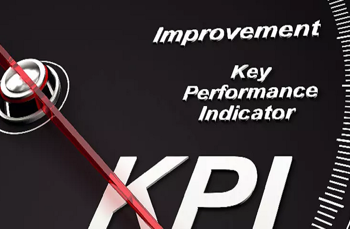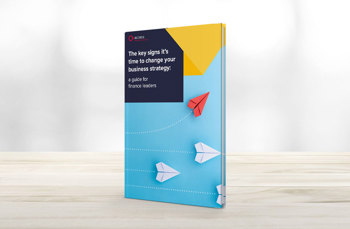The 7 Essential CFO and Finance Director Skills
The role of the Chief Financial Officer (CFO) and Finance Director has evolved far beyond traditional financial oversight. Modern finance leaders are expected to drive business growth, influence corporate strategy, and leverage technology to improve efficiency and profitability.
In this comprehensive guide, we reveal the 7 essential CFO skills you need to succeed in today’s competitive landscape. From mastering financial planning and risk management to embracing digital transformation and data-driven decision-making, these skills will help you:
- Lead strategically across the organization
- Enhance operational performance and scalability
- Future-proof your career in a rapidly changing market
Download your free CFO guide today and start building the skills that top-performing finance leaders rely on.
Whether you’re an experienced Chief Financial Officer (CFO) or Finance Director or relatively new to a finance leadership role, the skills needed for success are the same.
You are already likely to have strong mathematical and analytical abilities. You’ll be familiar with critical CFO and Finance Director responsibilities such as ensuring business sustainability, optimising cost controls and cash flow, and increasing profitability.
From the start, becoming a CFO or Finance Director can be challenging, especially in times of economic or business uncertainty when the business's financial health is in jeopardy.
For more resources, visit our Strategic CFO Resource hub.
CFO & Finance Director Skills and Qualities for Success
Difficult decisions sit at your door; managing cash flow weighs heavy when turnover is down. Even in more stable times, CFOs and Finance Directors can become focused on balance sheets, endless cost reduction goals and tightly embedded routines and processes. Rather than having the time and flexibility to take a more strategic and value-added stance to bring significant benefits over the longer term.
The most successful CFOs and Finance Directors take a more holistic view of the business, putting in place what is needed to ensure the business goals are successfully achieved.
This requires many skills and qualities, including resilience, confidence, relationship building and strategic thinking.
1. Resilience
Some of the world's most successful people have had considerable challenges to overcome. One of the greatest differences between the super successful and the average person can be their resilience. Resilience is the ability to bounce back when times get tough and is an undervalued but essential skill.
"Everyone experiences tough times; it is a measure of your determination and dedication how you deal with them and how you can come through them." - Lakshmi Mittal, Executive Chairman of ArcelorMittal, the world's largest steelmaking company.
As a CFO, you and your company will go through financial and economic difficulties such as recessions, downturns, pandemics, and financial crashes. The key is to build up your resilience so that you can ride out the storm, stay the course and come out of it a stronger person.
Many resources are available to help you do this, such as online training courses and books.
Using the principles of Stoicism, a favourite of many CEOs, The Obstacle is The Way by Ryan Holiday is one of the classic books providing a framework for overcoming difficulties in life and helping you build resilience.
Mindfulness practice, where you focus on the now, can help reduce stress, enable you to think clearly and build resilience in tough times. The Calm app can also give you 10 minutes in the day to rest and recuperate before you face the next challenge.
2. Confidence
According to a major study by Carnegie Mellon University, a professional’s confidence is more important than their reputation, skill set or history when earning the trust of other business professionals.
Many finance professionals are introverts that are happier hiding behind the numbers than meeting face-to-face with others. This means that they can sometimes portray a lack of confidence. However, as a CFO, you will find yourself in many situations where you will need to confidently present a case to gain buy-in from your stakeholders or other parts of the business.
Confident people are perceived as more successful, more credible, and better public speakers than non-confident people. The good news is that you can develop confidence over time through practice.
Three easy tips that you can start using right away are:
- Practice good posture – when you walk into a room or even on a video call, hold your head up, shoulders back, and walk with confidence. This will make you feel immediately more confident and appear more confident.
- Smile – many studies have shown that people appear more likeable when they smile. It also conveys confidence, regardless of how you are feeling inside.
- Don’t worry about what other people think – focus on the task and the message you need to communicate. You won’t know what other people are thinking, so don’t distract yourself by worrying about it.
For more tips on building confidence, see How to Be More Confident: 11 Scientific Strategies For More Confidence by Vanessa Van Edwards, author of Captivate – The Science of Succeeding with People.
3. Building relationships
The ability to cultivate a good working relationship with other colleagues and other areas of the business, including the CEO and internal and external stakeholders, is critical to the success of the CFO and Finance Director.
The CFO is the trusted advisor to the CEO and must be able to challenge them on decisions and advise them during difficult times. They must work together to present a single voice to the public and shareholders to build confidence in the business.
It is common for finance teams to be distributed geographically in multiple office locations, with virtual and hybrid working models. This makes it easy for the Finance function to be ‘hidden’ from the rest of the business.
The most successful CFOs and Finance Directors take time to ensure they remain visible within the business rather than inaccessible behind a closed door, whether that is online or in the office.
Technology can help CFOs, Finance Directors, and their teams bridge the gap by maintaining visibility, improving online communication across disparate groups, and building relationships. Technology also gives Finance Directors and their staff the chance to create new opportunities to be proactive or innovative. All of this will help to raise Finance’s profile throughout the business.
Two classics that will help you build your relationship skills, empathy and rapport, and emotional intelligence are: How to Win Friends and Influence People by Dale Carnegie and Executive EQ: Emotional Intelligence in Business by Robert Cooper and Ayman Sawaf.
4. People management and team-building skills
A vital element of a CFO’s skillset is the ability to structure, build and grow a high-performing finance team.
Employee retention is a major business concern in all industries, during the current economic environment. The costs of employee turnover span recruitment, training, productivity, and ultimately profitability.
The CFO must build their team with retention in mind and ensure that they have a highly effective, high-performing, cohesive team that feels valued and supports the strategic direction of the business.
Our blog on How To Build a Highly Effective Finance Team discusses in detail the challenges facing the finance team and the key people, processes and technology characteristics required to build a highly effective finance team.
Visit our Strategic CFO Resources Hub for more information on the key challenges affecting finance teams, and how they can become more strategic and work smarter.
5. Tech-savvy
More and more CFOs and Finance Directors are implementing data-driven finance software solutions to emphasise their value. As you get up to speed on the technology solutions available, don’t just focus on the specific needs of Finance.
In an increasingly digital world, a joined-up and fully integrated approach to business solutions can help Finance Directors in a multitude of ways - from reducing administrative tasks and improving accuracy and productivity in the Finance team to easing the practical burden of compliance and facilitating the discovery of more strategic solutions for the business.
Watch this webinar by The Access Group CFO, Rob Binns, to discover how automation and technology can help unlock the potential in finance teams to drive added value for the business in increasingly challenging times.
Implementing a technology solution that allows all teams from across the business to submit their information to a centralised dashboard means that new and more effective forms of strategic analysis can be carried out.
Having a centralised dashboard with cross-functional data can, in turn, lead to more sophisticated finance-led outcomes. This could (for example) mean identifying savings or changes that create the space for new investment rather than removing crucial pipelines already in place.
Find out how our Financial Management software can provide you with everything you need in one place to support your business as you grow.
6. Data-focussed
CFOs and Finance Directors must have accurate information at their fingertips before making any strategic decisions. Some Finance Directors choose to gather this via targeted meetings with department heads. However, manual collation of data is very time-consuming, and there’s no guarantee that qualitative information provided verbally will be accurate.
All too often, Finance Directors cannot make fast and effective decisions due to a lack of relevant information. Maybe the specific data required wasn’t collated in the first place, or it may be held by a different department or system and not easily accessible.
Technology helps by making it easier to automate the collection of business information, and a smart and collaborative data dashboard makes it possible to access that knowledge quickly.
CFOs and Finance Directors who find ways to fully utilise the data available across their business quickly will be more successful by enabling more informed, more responsive, and more strategic decision-making. They will also be able to demonstrate more effective collaboration too.
Learn more about how our finance software can help you automate your financial processes, connect your data, and support you with your strategic decision-making.
7. Strategic thinking
Strategic thinking enables you to take a step back from the day-to-day operations and look at your organisation as a whole - what you want your organisation to do, where you want it to be and where you’d like it to go.
Strategic thinking skills can significantly impact your business’s direction, overcome challenges and achieve business objectives. Check out our blog for more tips on How To Become a Successful CFO, and download our Strategic CFO whitepaper, where we look at some of the critical problems holding CFOs and finance directors back and what they can do to become more strategic.
What are the key pains that Finance Directors face when starting a new job?
How to succeed as a Strategic CFO
Adopting a strategic approach may seem daunting, pick up some tips on what strategic should look like and how you can take your business to the next level.

New CFO checklist: 90-day plan
Learn more about your first 3 months as a new CFO and where to start with our 90-day checklist.

How to become a successful CFO
Take a look at the common traits shared by successful CFOs and the key elements and skills that will add to CFO effectiveness.

How a CFO can use Business Intelligence
Read how successful CFOs use Business Intelligence to drive company strategy and support finance operations.
Tips to help you lead a finance team
The Strategic CFO needs to deliver strong financial performance, and for this needs a strong finance team to support and align on those goals.

Structuring your finance team: best practices to follow
Understand the considerations and best practices to make when structuring your finance team.

11 KPIs your finance team should monitor
What are KPIs, and why should your finance team track them? Explore the top 11 KPIs your finance team should track and why.

How To Build a Highly Effective Finance Team
Learn how to build a finance team that will support the business’s financial growth, strategy and performance.

How to become a Finance Director
Read the key skills required of a Finance Director and the steps you should take to get there.
How can technology support you as a Strategic CFO
For any organisation to be successful it’s important to be able to identify when it’s time to change your strategy and drive your business forward.

The key signs it's time to change your business strategy
Explore the 3 signs of a poor strategy and how a modern, data-fuelled approach can make a difference.

Key signs it's time to change your accounting system
This webinar discusses the impact of under investment in software, why companies decide to change accounting systems, and how to choose the right supplier

The data-driven future of finance and why CFO's need to embrace it
Take a look at the role and the importance of data to gain a better understanding of the financial health of the business.

Guide to CFO software
Look at the software tools which are of most use to the modern CFO, as well as the latest technology trends to look out for.

 AU & NZ
AU & NZ
 SG
SG
 MY
MY
 US
US
 IE
IE